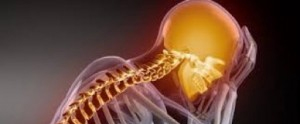Trigeminal Neuralgia

The trigeminal nerve carries sensation from the face to the brain. It’s most common in women over age 50. Symptoms range from mild to severe facial pain, often triggered by chewing, speaking, or brushing the teeth. Usually affects one side of the face Treatment includes medications, injections, and surgery.
Symptoms range from mild to severe facial pain, often triggered by chewing, speaking, or brushing the teeth.
People with Trigeminal Neuralgia may experience:
- Pain areas: in the ear, eye, forehead, jaw, or mouth and face
- Sensory: over sensitivity, pins and needles, sensitivity to pain, or uncomfortable tingling and burning
- Also common: muscle spasms, nerve injury, numbness of face, or toothache
Many believe that the protective sheath of the trigeminal nerve deteriorates, sending abnormal messages along the nerve. Like static in a telephone line, these abnormalities disrupt the normal signal of the nerve and cause pain. Several factors can cause the deterioration of this protective sheath: aging, multiple sclerosis, tumors, but most doctors agree that it is caused by an abnormal vein or artery that compresses the nerve. Some types of facial pain can result from an infected tooth, sinus infections, shingles or postherpetic neuralgia, or previous nerve injury.
Trigeminal neuralgia affects 1 in every 25,000 people, and occurs slightly more in women than men. Patients are usually middle age and older. Some people with multiple sclerosis also develop trigeminal neuralgia.
A variety of treatments are available, including medication, surgery, needle procedures, and radiation. First line treatment is medication. When medications fail to control pain or cause intolerable side effects, a neurosurgeon may be consulted to discuss other procedures.